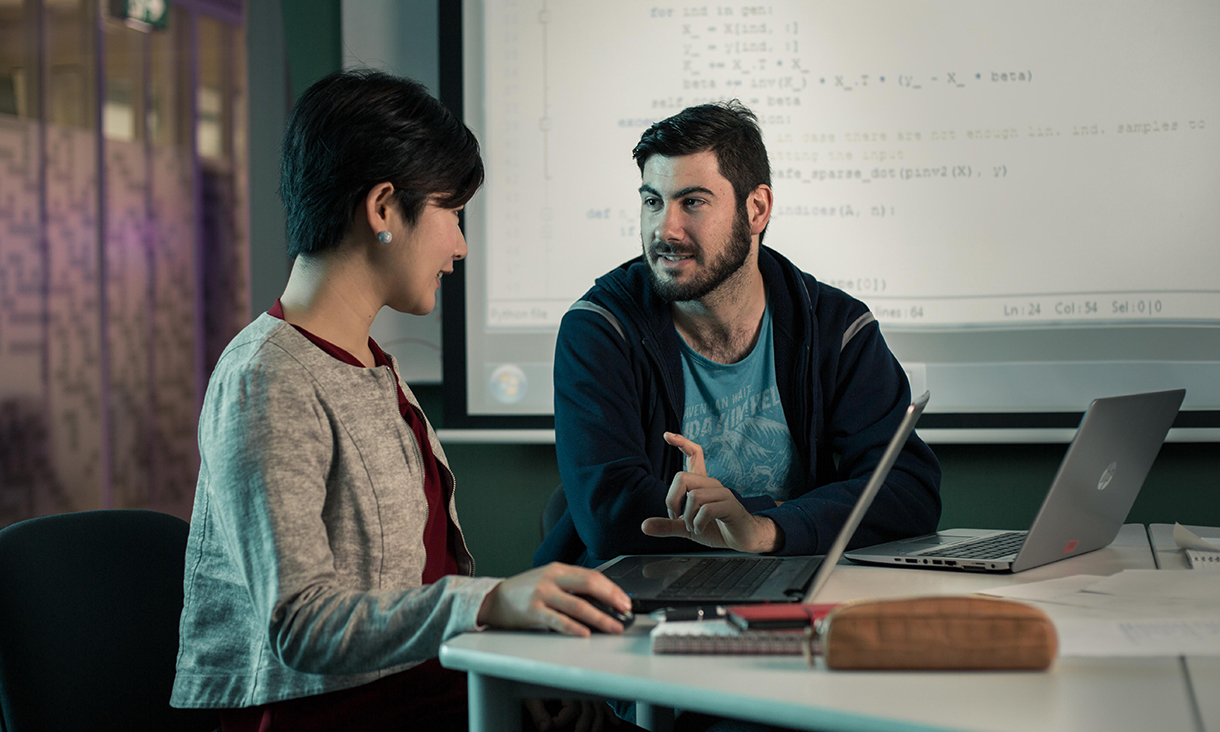This degree consists of 192 credit points, which equates to two years of full-time study.
This includes:
- four foundation subjects
- up to four advanced information technology subjects
- four subjects from your area or areas of specialisation (subject to availability)
- one elective subject (or an additional specialisation subjects)
- a project of research outcome consisting of either:
- a software engineering project in IT, as part of a team of up to 6 people, producing together a significant industry-based project, or
- a Research Minor Thesis, equivalent to an Honours thesis.
You can choose your specialisation from the following:
Big data analytics
The profusion of data generated by digital sources is creating a global information overload, but you’ll find out how big data analytics is solving real-world challenges like preventive healthcare and fighting crime.
Learn to manage big data and exploit its potential – capture, curation, storage, search, sharing, transfer, analysis and visualisation.
Cloud data, programming and infrastructure
Discover how computing tasks, such as running applications and storing data, can be carried out remotely, creating efficiencies and cost savings.
You’ll gain insights into cloud computing systems, including Google AppEngine, Microsoft Azure, Yahoo’s Hadoop, Google’s MapReduce, Amazon EC2 and S3s.
Artificial intelligence in systems and applications
AI is finding its way into more and more products and services. There is a growing demand for programmers who have the knowledge and expertise to implement AI solutions.
You’ll gain knowledge of the main theoretical aspects of AI and the skills to work with state-of-the-art software.
Mobile and IoT computing
Mobile technologies drive innovation in communications, finance and information-sharing, with demand growing for skilled creators of apps for industry, government and commerce.
You’ll develop skills in the key areas in mobile computing, including mobile software, mobile hardware and mobile communication and security.
Security and blockchain technology
The security of information collected, stored and exchanged concerns organisations in many sectors, including banking, health, utilities, government and more.
You'll learn to enhance security in computer systems and understand the mathematical basis of network security, including cryptography, coding for reliable communication, cloud security and algebra for information security. You will also be able to explore the details of blockchain processing in all its forms, including smart contracts.
Software systems and architecture
Software architects design and manage ICT infrastructure for optimal efficiency, getting the most out of the latest apps, systems and new technologies.
You’ll learn to design solutions using advanced software development techniques and technologies, exploiting the latest development environments and languages while balancing usability issues.
Web systems and search technology
With the growth of web services and applications, the boom in data and the need for increasingly sophisticated search technologies, opportunities abound for those with specialist web skills to develop and manage the systems and services we need.
You’ll build expertise in web development and web database applications, e-commerce and enterprise systems, web security and web document mark-up languages.
You’ll also learn about the design and implementation of search engines, search engine optimisation, structured and unstructured information management and web services.







